Soccer stadiums have become the cathedrals of the 21st century. They are sacred places where the initiate go to bear witness to that one thing we all understand: a soccer match.
However, watching a game at one of these particular venues would be unlike the vast majority of your stadium experiences. Some are planted in extreme conditions, and others have peculiarities that are more commonly associated with ground rules in baseball.
These are the 10 strangest fields in the world of soccer.
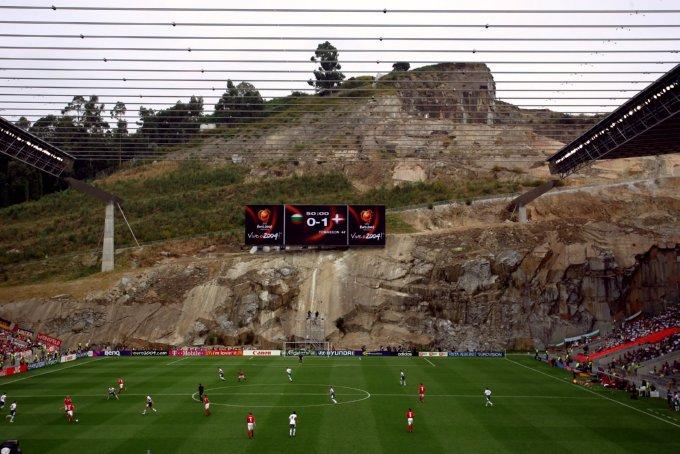
Estadio Municipal de Braga
Finished in 2003 for Portugal's hosting of the 2004 European Championships, the Estadio Municipal de Braga is also known as The Quarry, having been carved from the face of Monte do Castro.
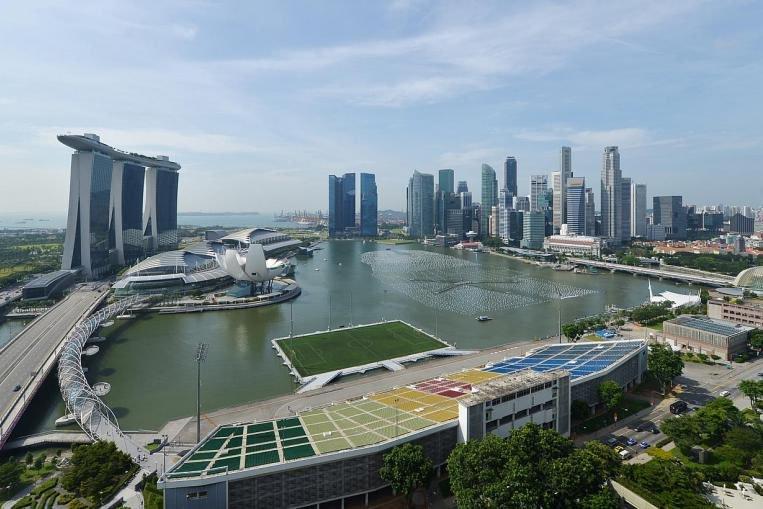
The Float
The Marina Bay Floating Platform is the world's largest floating stage. The capacity of the 'ground' is also an impressive 30,000.

The Allalin Glacier was the spot for a bit of history in March when amateur teams from Italy and Switzerland squared off at 11,482 feet, a new European record.
Felice Aqueduct
The Felice Aqueduct in the Quadraro district of Rome is home for Atletico Diritti, one of the most inspirational teams in all of Italy.
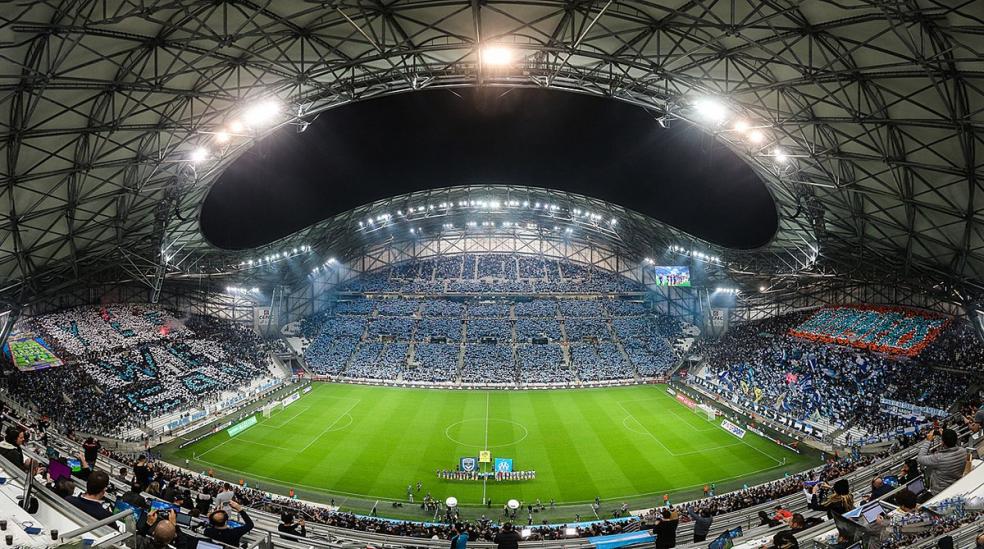
Stade Velodrome
One of Marseille's Stade Velodrome or Bordeaux Stadium had to be included after their renovations for Euro 2016. The Stade Velodrome gets the nod with its undulating roof.
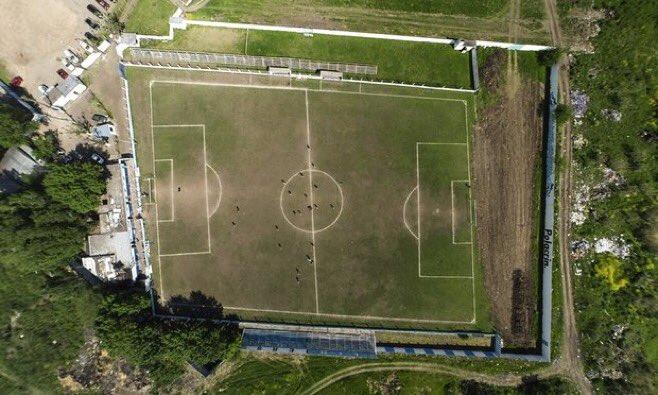
The Bulldozer
Home to Deportivo Liniers outside of Buenos Aires, the Argentine club have been playing on this wonky pitch for over 30 years. However, an image from Google Maps resulted in a mandate from the AFA to fix it.
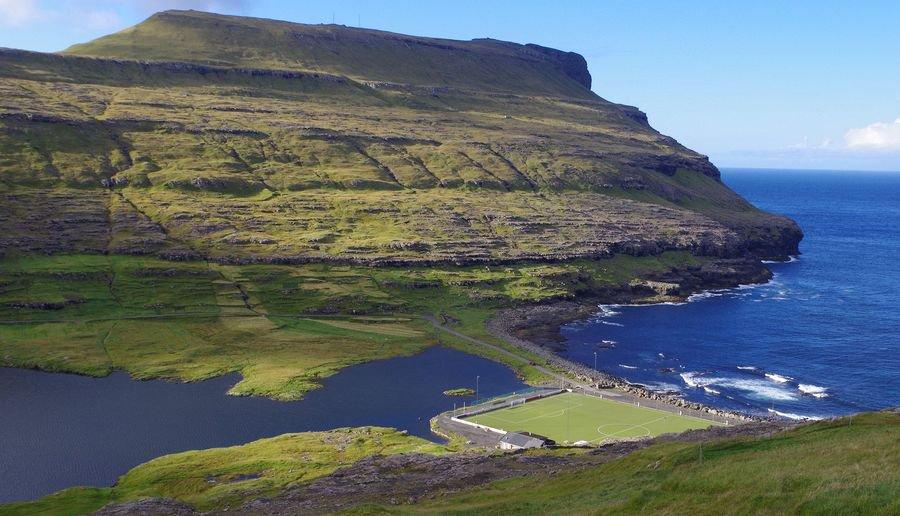
Eidi Stadium
The Eidi Stadium is completely surrounded by the North Atlantic Ocean, providing a beautiful locale for football in the Faroe Islands.
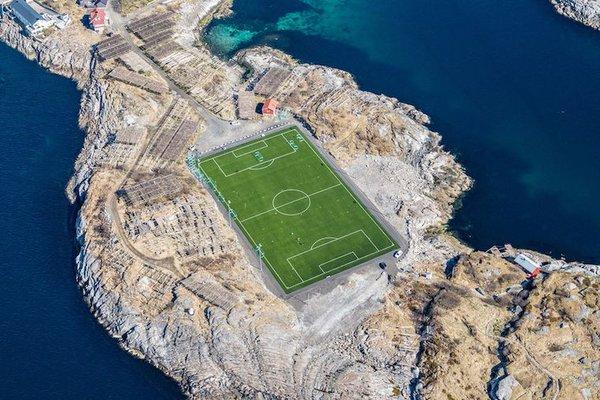
Henningsvaer Stadion
Based on a remote fishing island, the village has a population of less than 500, the Henningsvaer Stadion is one of the world's best kept secrets.
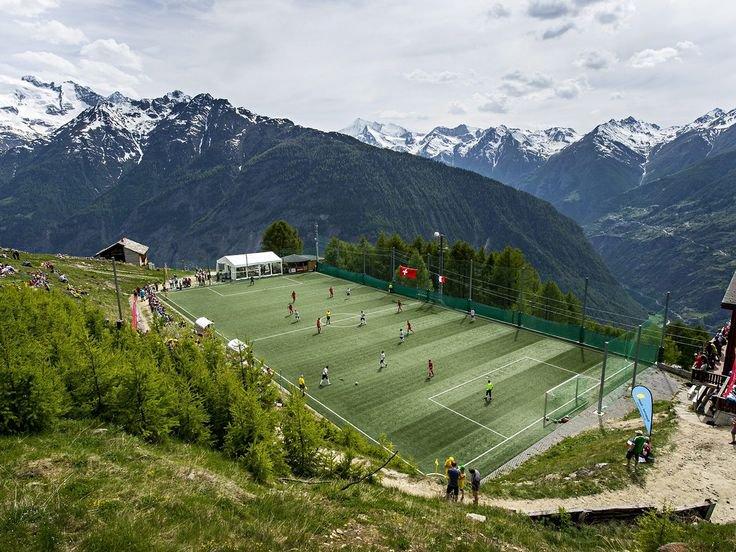
Ottmar Hitzfield Stadium
The highest permanent pitch in Europe, the Ottmar Hitzfield Stadium can only be reached by cable car.
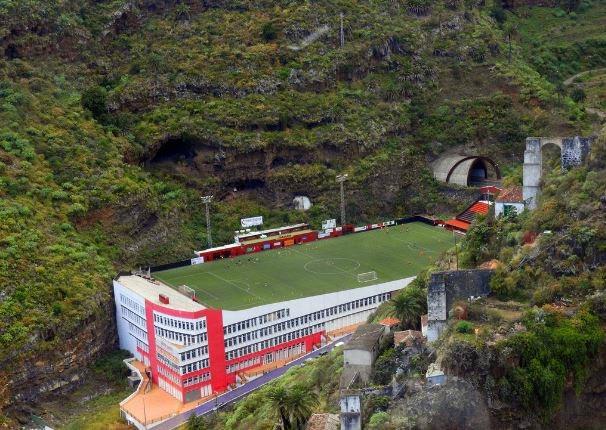
Nuevo Estadio Silvestre Carrillo
The most beautiful stadium in all of Spain is almost certainly the Nuevo Estadio Silvestre Carrillo in the Canary Islands.


